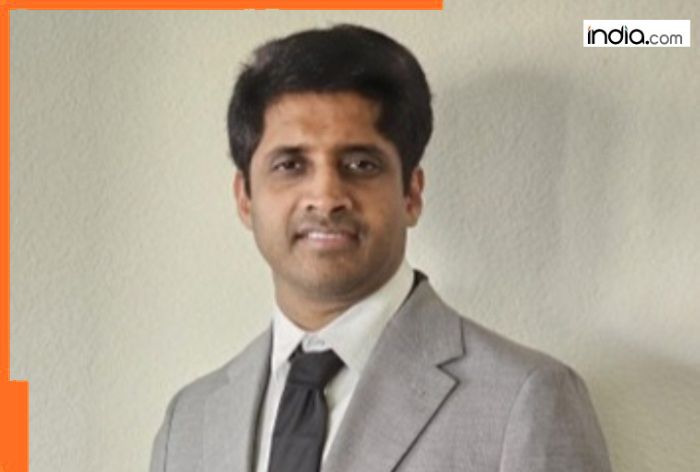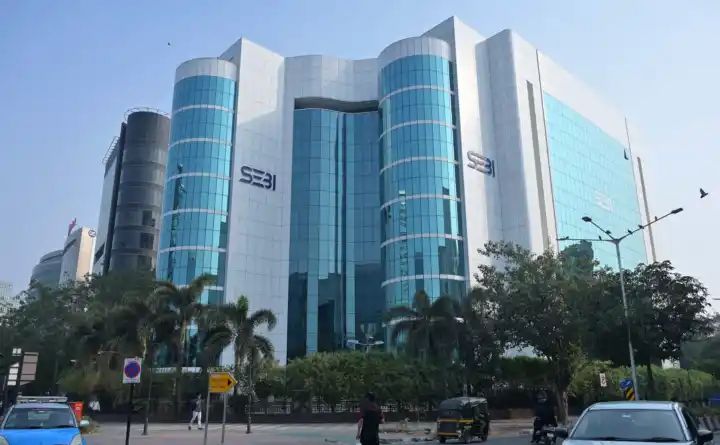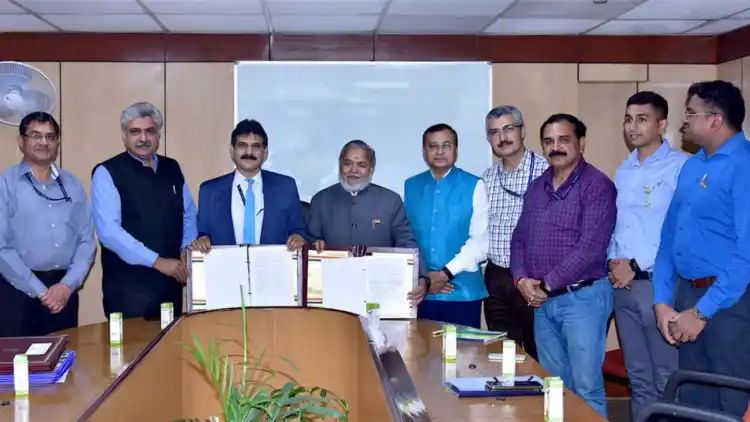Advancing Enterprise Solutions Through SAP: Rajesh Tirupathi’s Leadership in Digital Transformation

As a seasoned SAP Techno Functional Consultant with over 15 years of experience, Rajesh Tirupathi has established himself as a leader in enterprise technology solutions. His expertise in SAP S/4HANA implementations, combined with a deep understanding of artificial intelligence and machine learning, has helped organizations achieve significant improvements in operational efficiency and digital transformation. Specializing in Enterprise Portfolio & Project Management (EPPM), SAP Project Systems (PS), Commercial Project Management (CPM), and Plant Maintenance (PM), Rajesh has successfully led multiple large-scale implementations across diverse industries.
Q 1: What motivated you to pursue a career in SAP implementations and digital transformation?
A: My journey began with my background in electrical engineering, where I developed a strong foundation in systems thinking. The complexity and scope of SAP systems attracted me because they offered an opportunity to solve intricate business challenges through technology. Over time, I realized that successful digital transformation requires more than technical knowledge – it demands a deep understanding of business processes and the ability to bridge gaps between different organizational functions. This realization has shaped my approach to implementations, focusing on creating solutions that drive real business value.
Q 2: How do you approach complex SAP implementation projects?
A: Each implementation requires a carefully structured approach that begins with thorough requirement gathering and stakeholder engagement. In the utility sector, for example, I implemented a comprehensive digital transformation strategy that integrated multiple systems. The key is to break down complex projects into manageable components while maintaining sight of the overall objectives. I focus on creating detailed blueprints, conducting regular workshops with stakeholders, and ensuring clear communication throughout the project lifecycle. This methodology has consistently helped achieve successful implementations with minimal disruption to business operations.
Q 3: Could you describe your experience with SAP S/4HANA Cloud implementations?
A: Cloud implementations present unique challenges and opportunities. I’ve leveraged cloud APIs and the SAP Business Technology Platform to extend standard functionality in various projects. This required a different mindset from traditional on-premise implementations, focusing on rapid deployment and standardization. We successfully implemented custom solutions while maintaining the benefits of cloud architecture, resulting in improved scalability and performance. This experience highlighted the importance of understanding cloud-specific constraints and opportunities when designing solutions.
Q 4: How do you integrate artificial intelligence and machine learning into SAP implementations?
A: My Master’s degree in AI and Machine Learning has enabled me to bring innovative solutions to traditional SAP implementations. In a recent project, we implemented predictive analytics for project management and automated data validation processes. These technologies helped reduce manual effort by 40% and improved decision-making accuracy. The key is to identify areas where AI can add genuine value rather than implementing it for its own sake. This approach has helped organizations achieve tangible benefits from their digital transformation initiatives.
Q 5: What role does data migration play in your implementation strategy?
A: Data migration is critical to implementation success. I’ve developed a comprehensive approach using tools like LTMC and LSMW, incorporating automated validation checks and reconciliation processes. In one major implementation, we achieved near-perfect data accuracy by implementing multiple validation layers. The key is to understand not just the technical aspects of data migration but also the business impact of each data element. This ensures that migrated data supports business operations effectively from day one.
Q 6: How do you approach integration between SAP and third-party systems?
A: Integration requires a deep understanding of both systems and business processes. In one significant project, I led the integration of SAP with Primavera P6 and Field Service Management systems. Success in these projects comes from careful planning, robust testing, and clear communication between all stakeholders. We focus on creating flexible integration frameworks that can accommodate future changes while maintaining data integrity and system performance.
Q 7: What has been your experience with SAP Commercial Project Management?
A: Working with CPM has involved creating sophisticated solutions for project oversight and control. I’ve implemented multi-project workspaces, embedded analytics, and contract management solutions that have improved project visibility and financial control. The integration of CPM with other modules has helped organizations achieve better project oversight and enhanced decision-making capabilities. In one implementation, we delivered a comprehensive CPM solution that reduced project reporting time by 50%.
Q 8: How do you ensure successful change management during implementations?
A: Change management is crucial for project success. My approach involves early stakeholder engagement, comprehensive training programs, and clear communication channels. Throughout my projects, we’ve established regular workshops and feedback sessions that helped achieve high user adoption rates. I believe in creating a supportive environment where users feel comfortable with new systems and processes, which is essential for long-term success.
Q 9: What role does continuous learning play in your career?
A: Technology evolves rapidly, and staying current is essential. My pursuit of advanced education in AI and Machine Learning, along with multiple SAP certifications, reflects my commitment to continuous learning. This knowledge allows me to bring innovative solutions to traditional SAP implementations while ensuring they align with current best practices and emerging technologies.
Q 10: What trends do you see shaping the future of SAP implementations?
A: The future of SAP implementations will be increasingly cloud-centric and AI-driven. I anticipate greater emphasis on real-time analytics, automated processes, and predictive capabilities. Integration with emerging technologies like IoT and blockchain will become more common, while maintaining robust security and compliance frameworks will remain crucial. Organizations will need to balance innovation with stability as they navigate these changes.
About Rajesh Tirupathi
Rajesh Tirupathi is a distinguished SAP Techno Functional Consultant with over 15 years of professional experience, specializing in SAP implementations across Enterprise Portfolios & Project Management, Project Systems, and Commercial Project Management. His expertise spans successful implementations at major organizations where he has consistently delivered solutions that improve operational efficiency. Holding a Master’s degree in Artificial Intelligence and Machine Learning, along with multiple SAP certifications including S/4HANA Portfolio and Project Management, Rajesh brings a unique combination of technical expertise and business acumen to his projects. His implementation experience covers both on-premise and cloud environments, with a strong focus on integration and data migration. Rajesh’s background in electrical engineering, combined with his expertise in artificial intelligence, enables him to bring innovative solutions to traditional SAP implementations while maintaining a commitment to continuous learning and professional development.
First Published: 11 February, 2023





